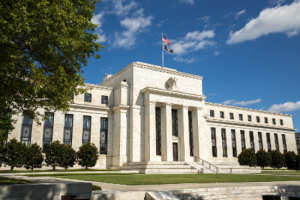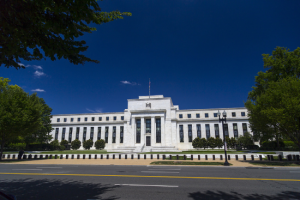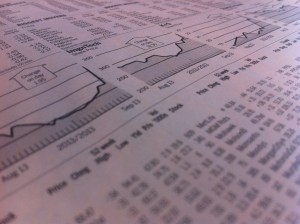The delinquency rate on loans is key in understanding banking. What percentage of loans is overdue for payment? And is a new banking crisis imminent?
Click here to continue readingThere exist two industries that did not manage to reach analyst estimates and experienced a sharp decline in earnings: oil and the banking industry. The European Central Bank has once again decided to continue with negative interest rates and contribute to credit expansion where lowering of interest rates and increasing in borrowing are facilitated.
Click here to continue readingThe efficient-market hypothesis becomes questionable with the phrase “sell in May and go away”, because if really the case, the market will have already reflected the available information and the value of the stock before May arrives.
Click here to continue readingTypically, it is believed that a nation’s central bank is the resolute decider of the economy of its nation. In today’s day and age, in the political-economic establishment of international bureaucracies, it is easy to envision the end of the world for some nations without the central bank. The Federal Reserve is the central bank of the United States. It serves as a decentralized entity broken up into 12 districts across the country and a Board of Governors in Washington D.C. Founded in 1913, its decisions throughout history have always proven to be controversial.
Click here to continue readingPerhaps the most important theoretical topic concerning the economy as a discipline is attempting to explain the idea of economic cycles. In practical terms, an economic cycle is understood as being a periodic fluctuation in national income, employment and prices. Successful, and sometimes not so successful, attempts at an explanation have been made in both the media and academic worlds.
Click here to continue readingOne of the big concerns on Wall Street is the large amount of share buybacks that corporations are currently engaging in. It’s generally thought that companies engage in buybacks when they have limited investment opportunities to deploy cash.
Click here to continue readingCreditors of private and government debt generally perform credit analyses, first to grant a loan or purchase bonds, and then eventually to evaluate debt restructurings.
Click here to continue readingGreece’s delayed payment on its debt, its possible default, and an eventual exit from the euro have been some of the most widely covered news stories in the media over the last weeks. What would be the implications of a Greek default? What would be the implications of an eventual Greek exit from the euro?
Click here to continue readingWhen talking about economic recovery, a distinction must be made between short-term and long-term effects. We’ll label as short-term effects those that last less than a year, and as mid and long term those that last more than a year. In practice, three to five years are needed to determine if effects are long lasting or not.
Click here to continue readingGet our free exclusive report on our unique methodology to predict recessions











